In this article, we explore the power of storytelling in healthcare marketing and how it can help healthcare providers connect with patients on a personal level, build trust and credibility, and establish a strong brand identity. We'll cover various types of healthcare marketing stories, including patient stories, provider stories, brand stories, and educational stories, and provide examples of how they are used by healthcare organizations to engage patients and improve health outcomes.
Healthcare marketing is a crucial aspect of the healthcare industry, involving promoting healthcare services, products, and facilities to attract and retain patients. However, traditional marketing techniques are often ineffective in this sector. Patients are seeking more than just services or products; they want to connect with healthcare providers on a personal level. This is where storytelling comes in. Storytelling in healthcare marketing can be a powerful tool to engage patients, build trust, and foster a sense of community.
The Role of Storytelling in Healthcare Marketing
Storytelling is a way to communicate a message through a narrative. In healthcare marketing, storytelling can help patients connect with healthcare providers on an emotional level. Patients want to feel heard, understood, and cared for. By sharing stories that resonate with patients, healthcare providers can build relationships and trust with their audience.
Patient Stories
Sharing patient stories can help healthcare providers connect with potential patients on a personal level. By highlighting the experiences of patients who have received care from the provider, healthcare organizations can showcase their expertise and demonstrate their commitment to patient care.
Example: Rogers Behavioral Health's patient stories page is a powerful example of how storytelling can be used in healthcare marketing. The page features a collection of patient stories that highlight the impact of Rogers' mental health and addiction treatment services. Each story is written in the patient's own words and provides a candid and personal account of their experience with Rogers' care.
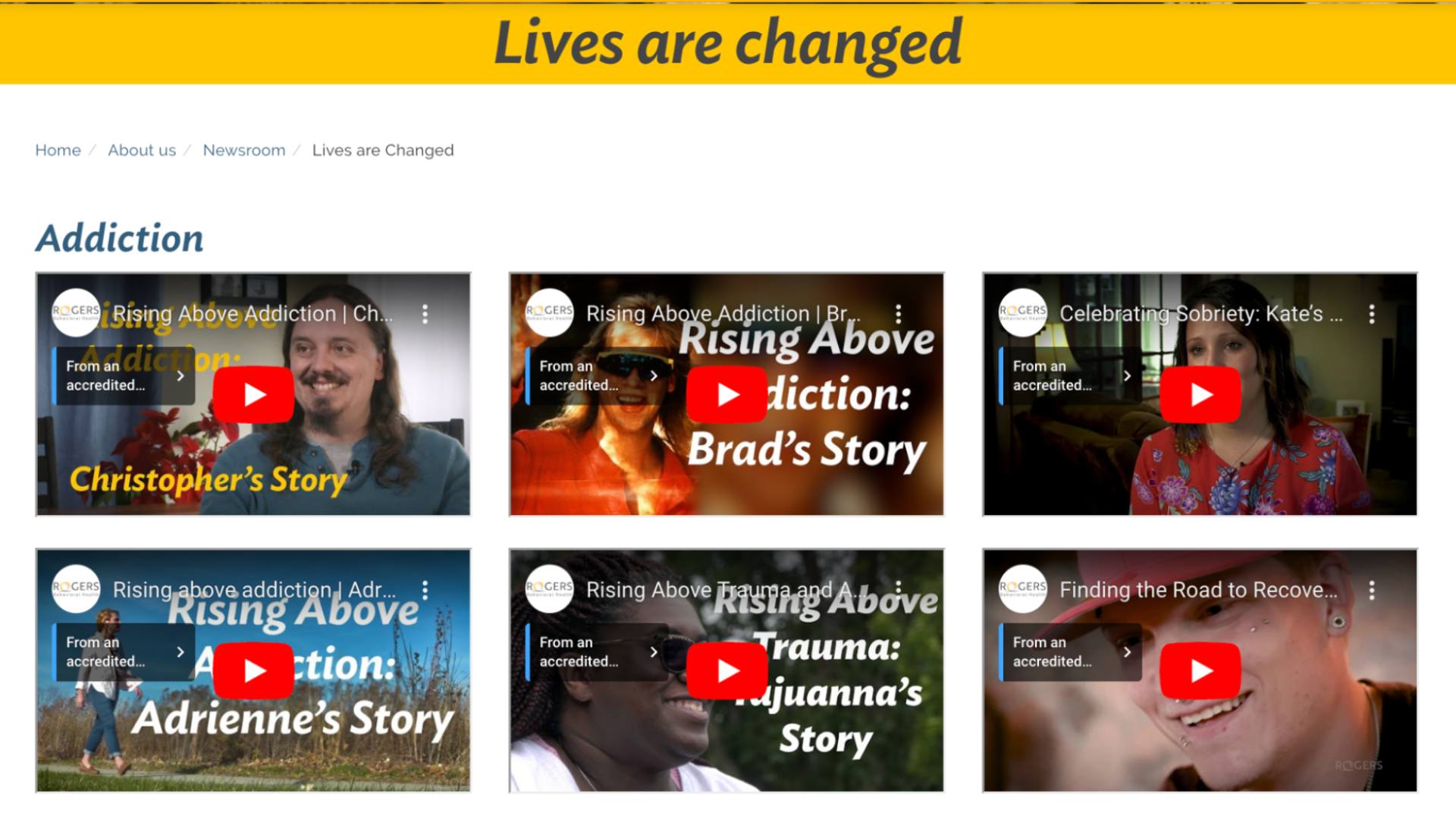
Rogers Behavioral Health. (n.d.). Patient stories. Rogers Behavioral Health. https://rogersbh.org/about-us/newsroom/patient-stories
Provider Stories
Providers can share their own stories to demonstrate their passion for healthcare and their dedication to their patients. Personal stories can help providers establish a human connection with potential patients, which can help build trust and credibility.
Example: Central and North West London NHS Foundation Trust. A year of child health visiting work with vulnerable families: Zoe’s story.
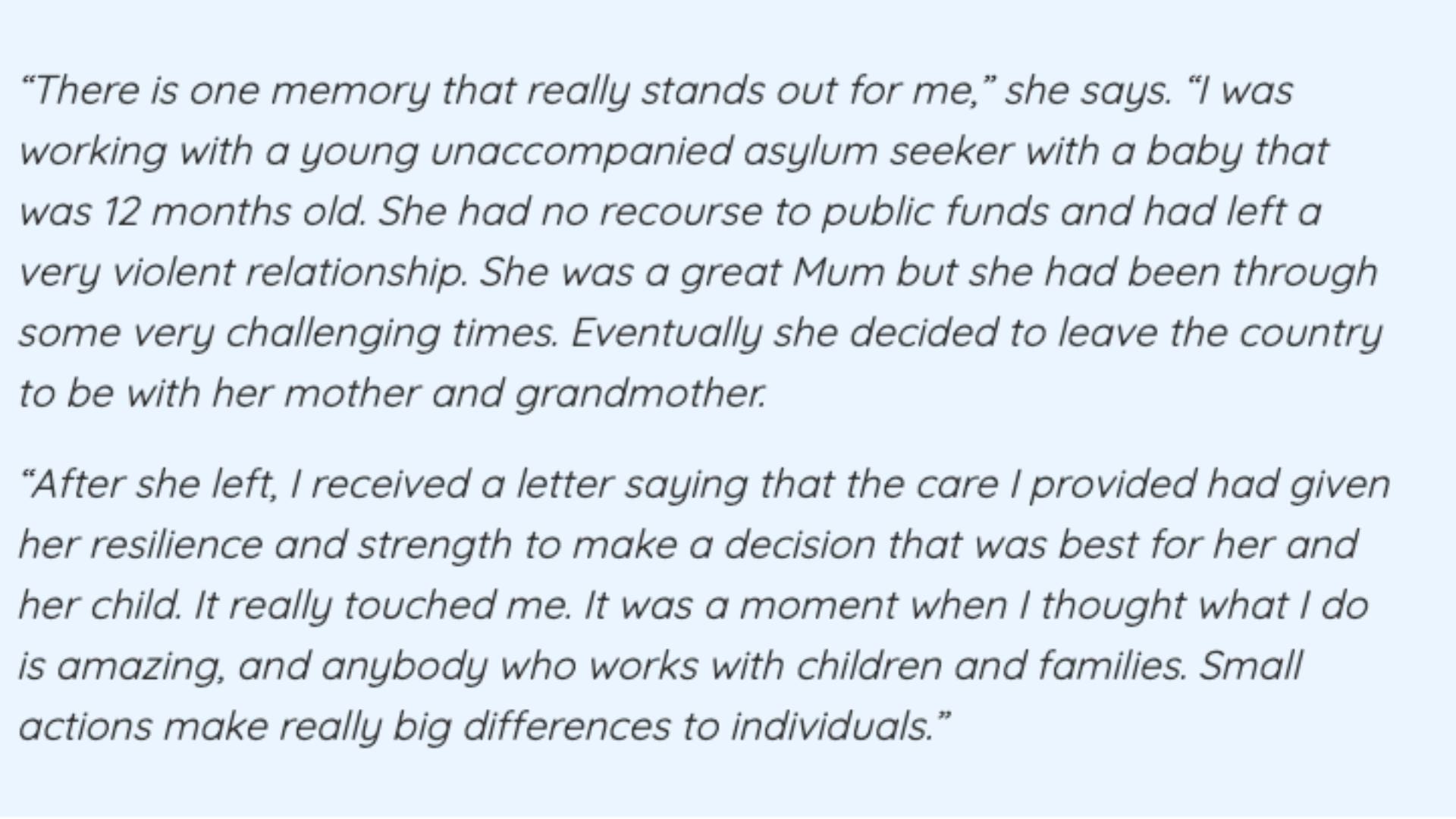
Central and North West London NHS Foundation Trust. https://www.cnwl.nhs.uk/news/year-child-health-visiting-work-vulnerable-families-zoes-story/
Educational Stories
Healthcare providers can use stories to educate patients about health topics in a more engaging way. For example, a hospital might create a video that tells the story of a patient who quit smoking and improved their health as a result. By sharing this story, the hospital can help other patients see the benefits of quitting smoking and inspire them to take action.
Example: Rogers Behavioral Health uses Educational Stories to help patients understand evidence-based therapies like Cognitive Behavioral Therapy (CBT) and Dialectical Behavior Therapy (DBT). In a blog post titled "Understanding CBT and DBT and How Rogers Uses These Evidence-Based Therapies"
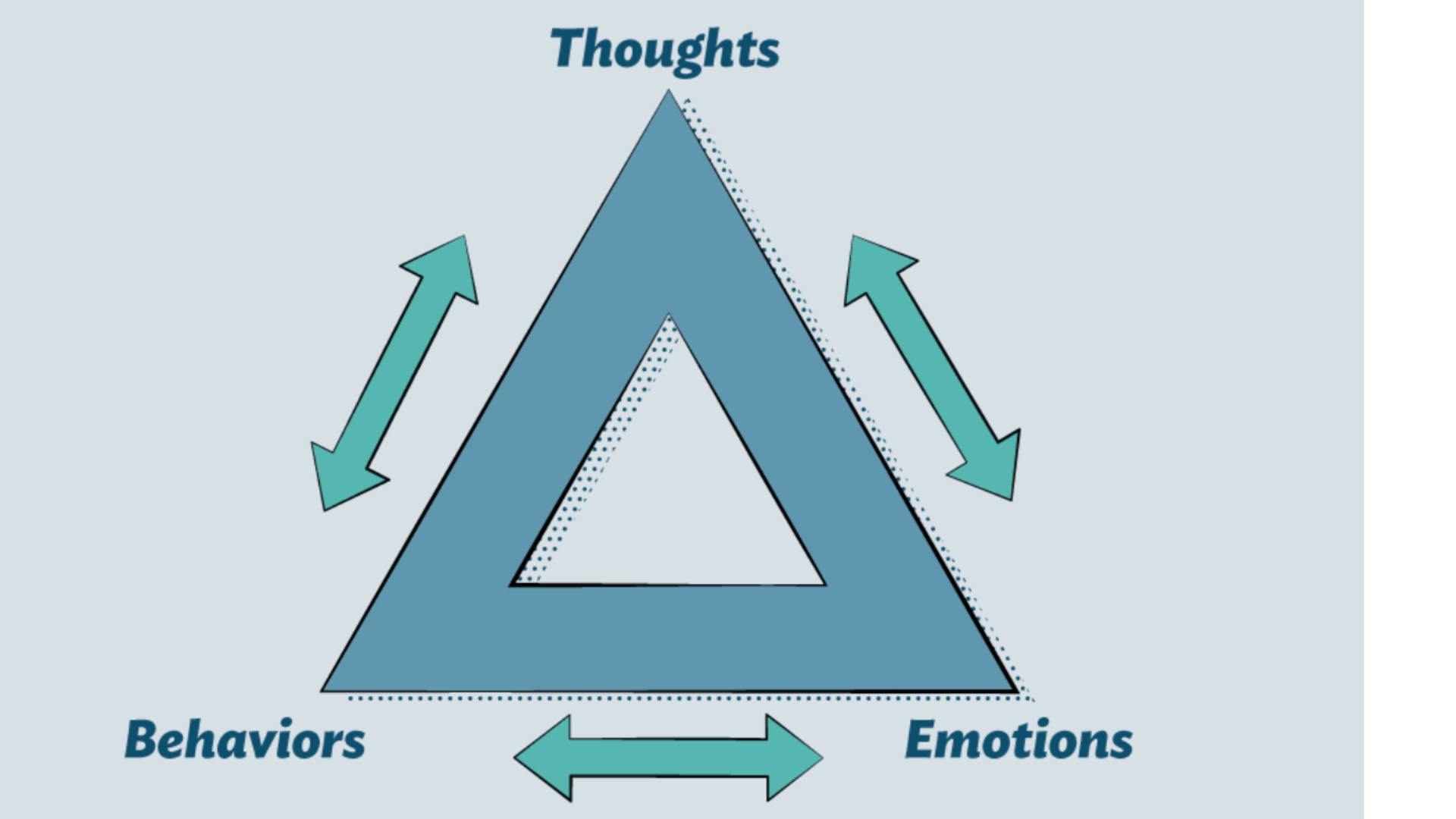
Rogers Behavioral Health. (2022, March 29). Understanding CBT and DBT and how Rogers uses these evidence-based therapies. Rogers Behavioral Health. https://rogersbh.org/about-us/newsroom/blog/understanding-cbt-and-dbt-and-how-rogers-uses-these-evidence-based-therapies
Brand Stories
By telling stories that align with their values, healthcare providers can establish themselves as trustworthy and compassionate partners in patients' healthcare journeys.
Example: Bridge Natural Health uses Brand Stories to showcase their values and mission.
The story also highlights the values of compassion, integrity, and excellence that guide the practice. By sharing this Brand Story, Bridge Natural Health is able to establish themselves as a trustworthy partner in patients' healthcare journeys. This type of storytelling can be especially effective for healthcare organizations looking to differentiate themselves from competitors and establish a strong brand identity.

Bridge Natural Health Ltd. (n.d.). About us. Bridge Natural Health Ltd. Retrieved May 1, 2023, from https://bridgenaturalhealth.co.uk/about-us/
Social Media Stories
Healthcare providers can use social media platforms like Instagram and Snapchat to share short, engaging stories that showcase their expertise and build relationships with patients. For example, a hospital might share a behind-the-scenes story about a surgical procedure to help patients feel more comfortable with the process.
Example: Dr. Michael Salzhauer, better known as Dr. Miami, is a plastic surgeon who uses social media to connect with patients and build his brand. On his Instagram and Snapchat accounts, Dr. Miami shares short, engaging stories that showcase his expertise and behind-the-scenes glimpses of his surgical procedures. He uses these stories to educate patients about plastic surgery, share testimonials from satisfied patients, and build relationships with his audience.
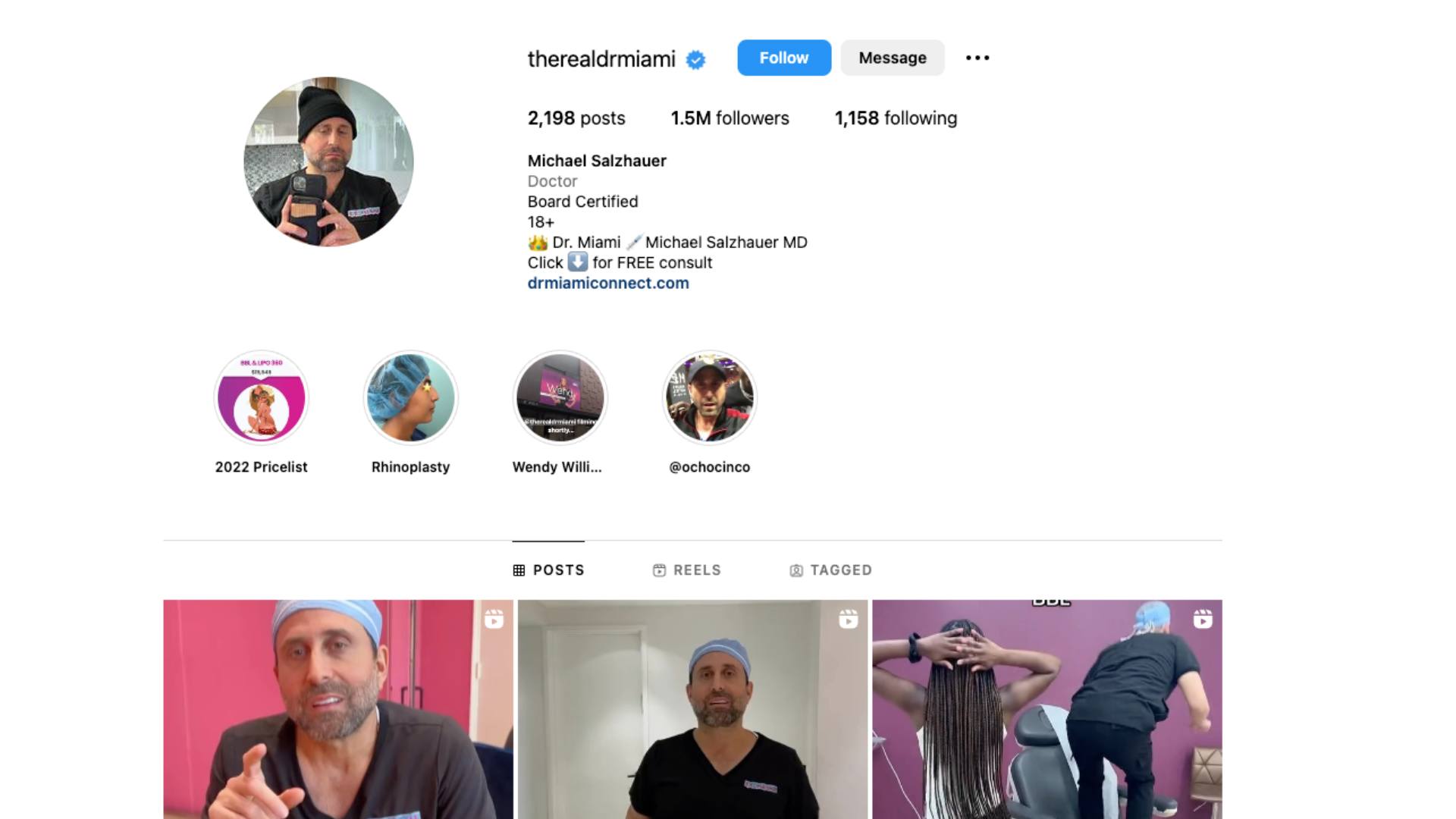
The Real Dr. Miami [@therealdrmiami]. (n.d.). Instagram. Retrieved May 1, 2023, from https://www.instagram.com/therealdrmiami/
These are just a few examples of how storytelling can be used in healthcare marketing to connect with patients and build trust.
The Benefits of Storytelling in Healthcare Marketing
Storytelling can help patients understand complex medical procedures, illnesses, and treatments by explaining them in a relatable and easy-to-understand way. Storytelling can make healthcare providers seem more approachable, leading to a more positive patient experience.
Storytelling can create a sense of community by highlighting shared experiences and creating a dialogue between healthcare providers and patients.
The Role of Websites in Storytelling
Websites are a critical component of healthcare marketing, providing a platform for healthcare providers to share their stories with a wider audience. Using a CMS, healthcare providers can create visually appealing and engaging websites that highlight their services, products, and facilities. Concrete CMS is a content management system that is used for websites in the healthcare industry. This type of CMS allows healthcare providers to create and manage content easily, ensuring that their websites are always up-to-date.
User-Friendly Website Design
A user-friendly website design is essential for healthcare websites. Websites should be easy to navigate, with a clear menu structure, and easy-to-find contact information. It is also important to ensure that the website is mobile-friendly and loads quickly.

Example: Confida Health website is a great example of a user-friendly healthcare website design. The website is easy to navigate, with clear menu options and an intuitive search bar. The website is also mobile-friendly and loads quickly.
Patient Testimonials
Patient testimonials can be a powerful tool for healthcare websites. They provide social proof of the effectiveness of healthcare services and can build trust with potential patients.
Example: Rogers Behavioral Health website features patient testimonials on its homepage. The testimonials highlight the positive experiences patients have had with the clinic's services, building trust with potential patients.
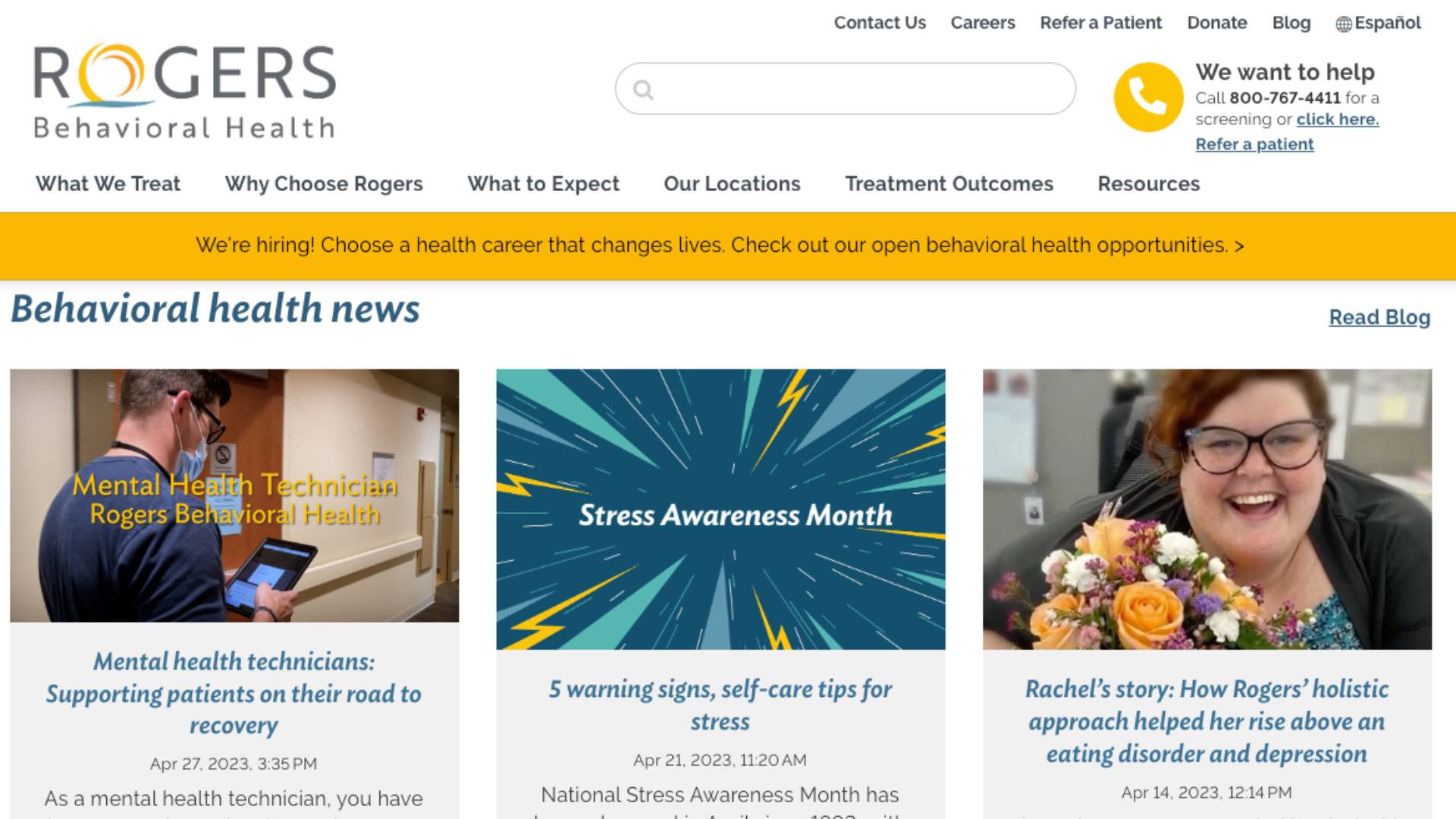
Rogers Behavioral Health. (n.d.). Rogers Behavioral Health. Retrieved May 1, 2023, from https://rogersbh.org/
Healthcare Blog
A healthcare blog can be a valuable addition to a healthcare website. A blog can provide informative content for patients, highlight new treatments or procedures, and improve search engine rankings.
Example: The Dental Associates website has an extensive healthcare blog that provides patients with informative content on a variety of healthcare topics. https://www.dentalassociates.com/blog
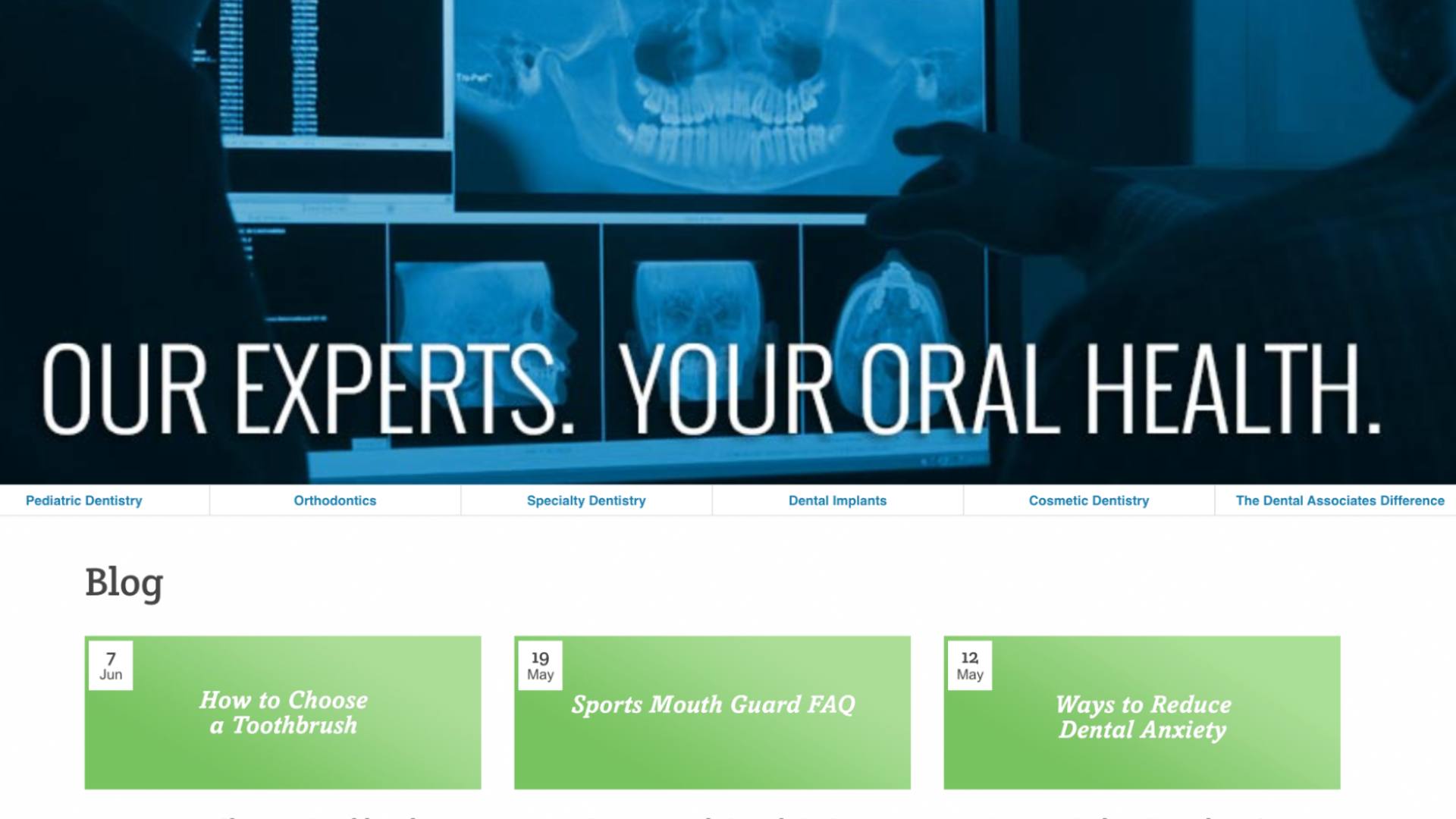
Dental Associates. (n.d.). Blog. Dental Associates. Retrieved May 1, 2023, from https://www.dentalassociates.com/blog
Online Scheduling
Online scheduling can make it easier for patients to make appointments and can improve the patient experience.
Example: Bristol Health website allows patients to schedule appointments and Telehealth visits online. The website also has a feature that allows patients to view their medical records online.
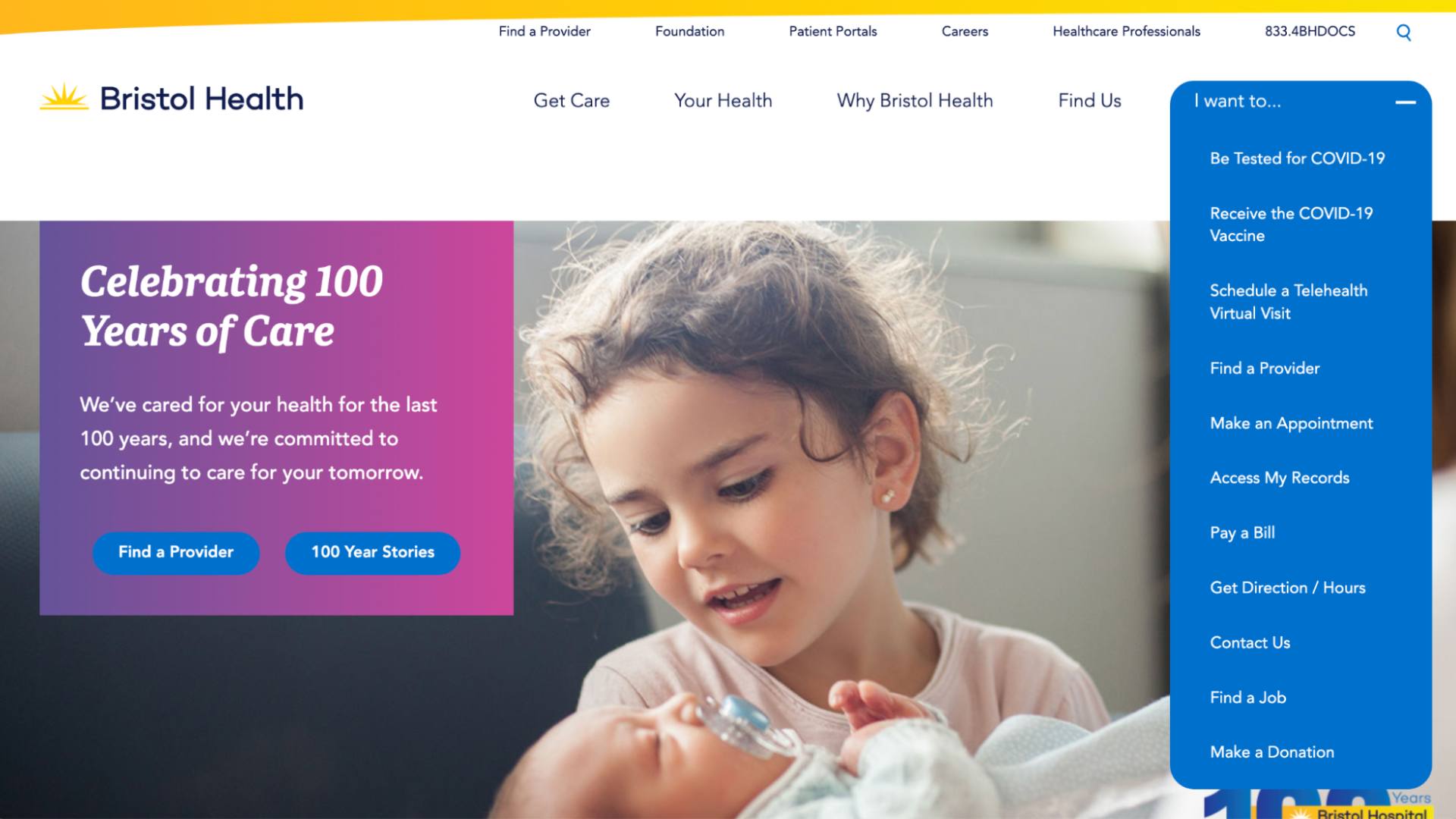
Bristol Health. (n.d.). Bristol Health. Retrieved May 1, 2023, from https://www.bristolhealth.org/
Health Risk Assessments
Health risk assessments can provide patients with valuable information on their health and can encourage them to seek treatment.
Example: Rogers website has a health risk assessment tools that provides patients with information on their mental health and encourages them to seek treatment if necessary.
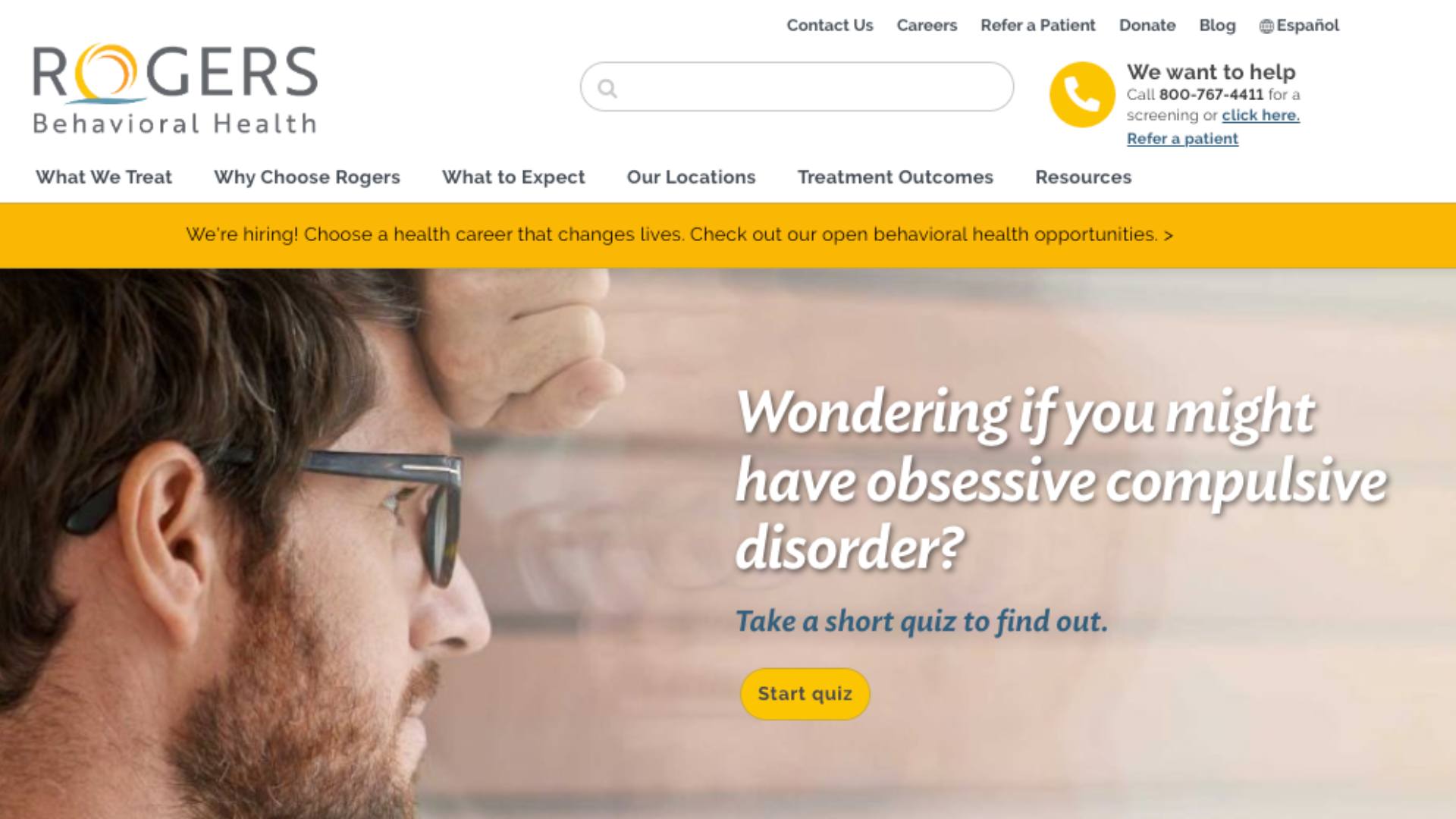
Rogers Behavioral Health. (n.d.). OCD quiz. Rogers Behavioral Health. Retrieved May 1, 2023, from https://rogersbh.org/OCDquiz
By implementing these website strategies, healthcare providers can improve the patient experience, build trust with potential patients, and provide informative content that can improve patient outcomes.
Best Practices for Storytelling in Healthcare Marketing
To use storytelling effectively in healthcare marketing, it is important to keep several best practices in mind. The first best practice is to focus on telling patient stories that highlight the positive impact of healthcare services, products, and facilities. Patient stories can help potential patients connect with healthcare providers on a personal level and showcase the benefits of the services or products offered.
- Make sure that stories are relatable and easy to understand.
- Use visuals and multimedia to enhance the storytelling experience.
- Ensure that stories are authentic and transparent, building trust with patients.
- Use storytelling as an ongoing strategy to keep patients engaged and foster a sense of community.
Ethical considerations in healthcare marketing
Ethical considerations are essential in healthcare marketing to ensure that healthcare organizations do not exploit or mislead patients. Some unethical practices in healthcare marketing include making false claims, using scare tactics to attract patients, and misrepresenting medical evidence. Legal considerations are also important in healthcare marketing to ensure that healthcare organizations comply with regulations.
Providing Accurate Information:
Healthcare organizations must ensure that all information they provide to patients is accurate and backed by medical evidence. This includes information about their services, products, and facilities.
Example: The FDA requires pharmaceutical companies to provide accurate information about their products in advertising and marketing materials, including any potential side effects or risks.
Avoiding Misleading Claims:
Healthcare organizations must avoid making any false or misleading claims about their services, products, or facilities. This includes avoiding exaggeration or misleading language that could deceive patients.
Example: The Federal Trade Commission (FTC) has taken legal action against companies that make false claims about their products, such as claiming that a product can cure cancer or other serious illnesses.
Prioritizing Patient Well-being:
Healthcare organizations must prioritize patient well-being over profits in their marketing efforts. This includes avoiding any marketing practices that could harm patients or put them at risk.
Example: A healthcare organization may choose not to advertise a certain procedure or treatment if they believe it is not in the patient's best interest, even if it could be profitable for the organization.
Complying with Regulations:
Healthcare organizations must ensure that they comply with all relevant regulations and laws in their marketing efforts. This includes regulations related to advertising, data privacy, and patient protection.
Example: The Health Insurance Portability and Accountability Act (HIPAA) sets regulations for how healthcare organizations can collect, use, and share patient data. Healthcare organizations must comply with these regulations in all of their marketing efforts.
By adhering to ethical considerations in healthcare marketing, healthcare organizations can build trust with patients, avoid legal and regulatory issues, and prioritize patient well-being.
Conclusion
Storytelling in healthcare marketing is a powerful tool to engage patients, build trust, and foster a sense of community. By using a concrete CMS to create visually appealing and engaging websites, healthcare providers can share their stories with a wider audience. To use storytelling effectively, healthcare providers should focus on telling patient stories that are relatable, authentic, and easy to understand. By adhering to best practices and using storytelling as an ongoing strategy, healthcare providers can create a more patient-centered approach to healthcare marketing.
